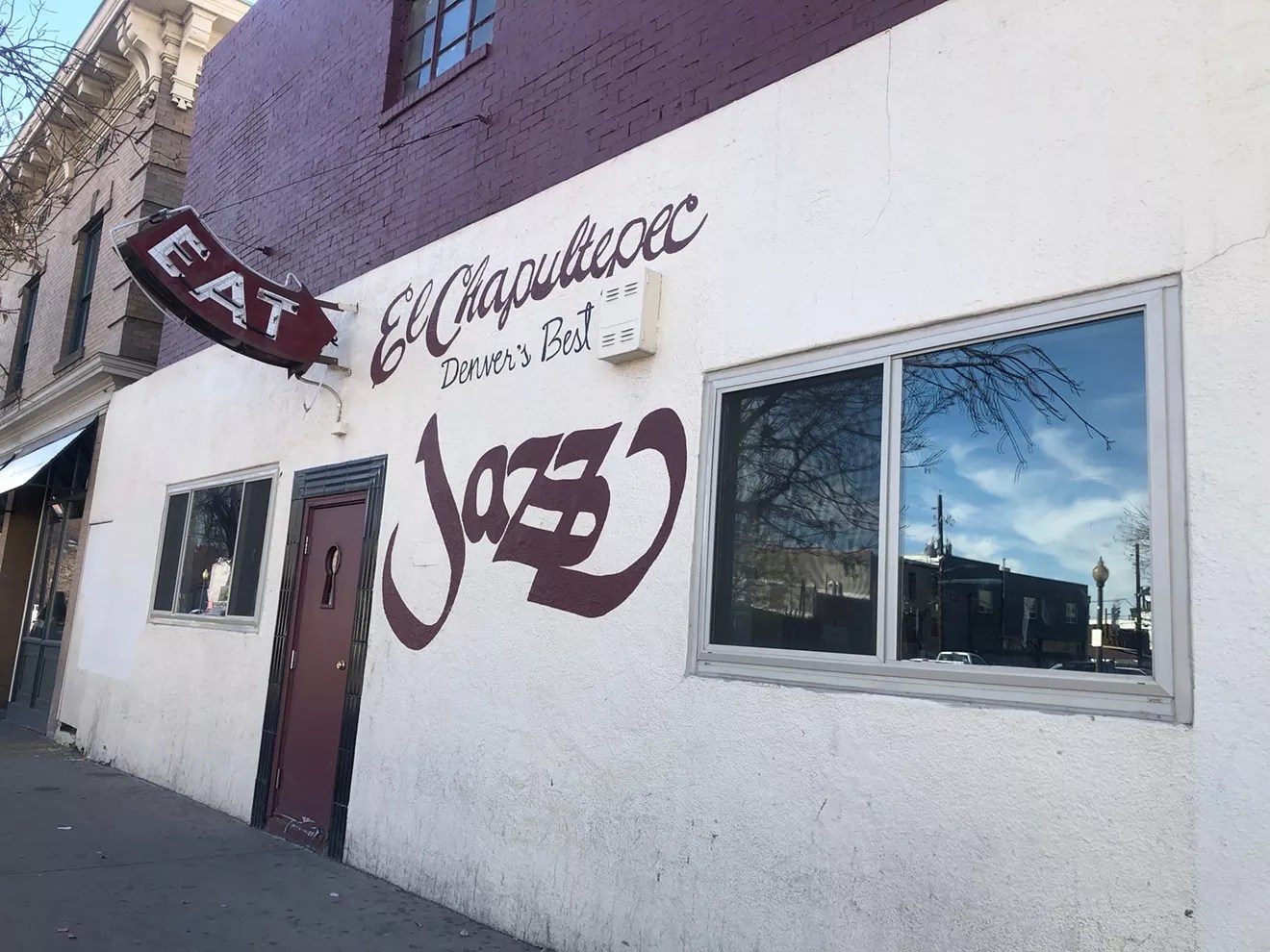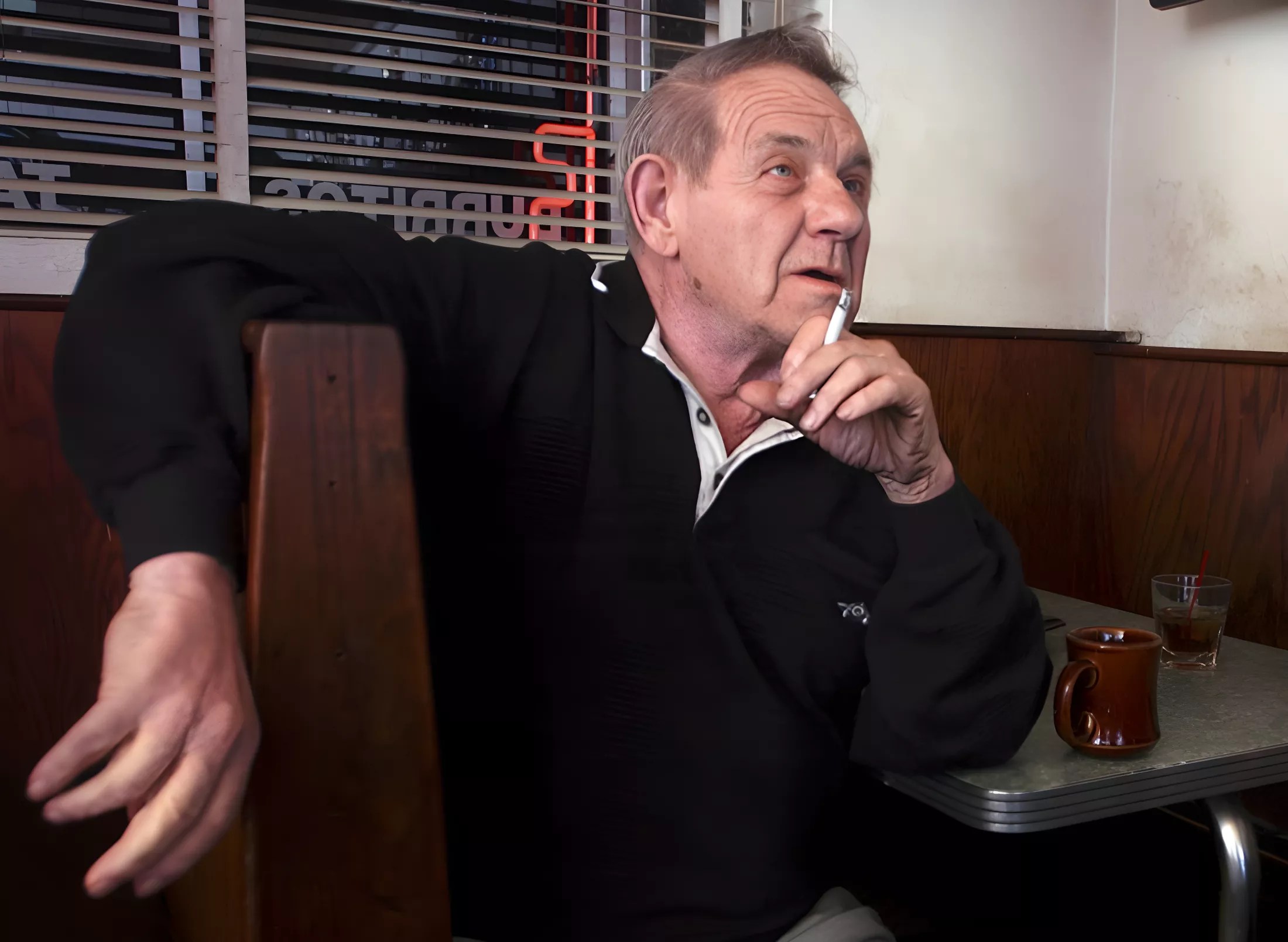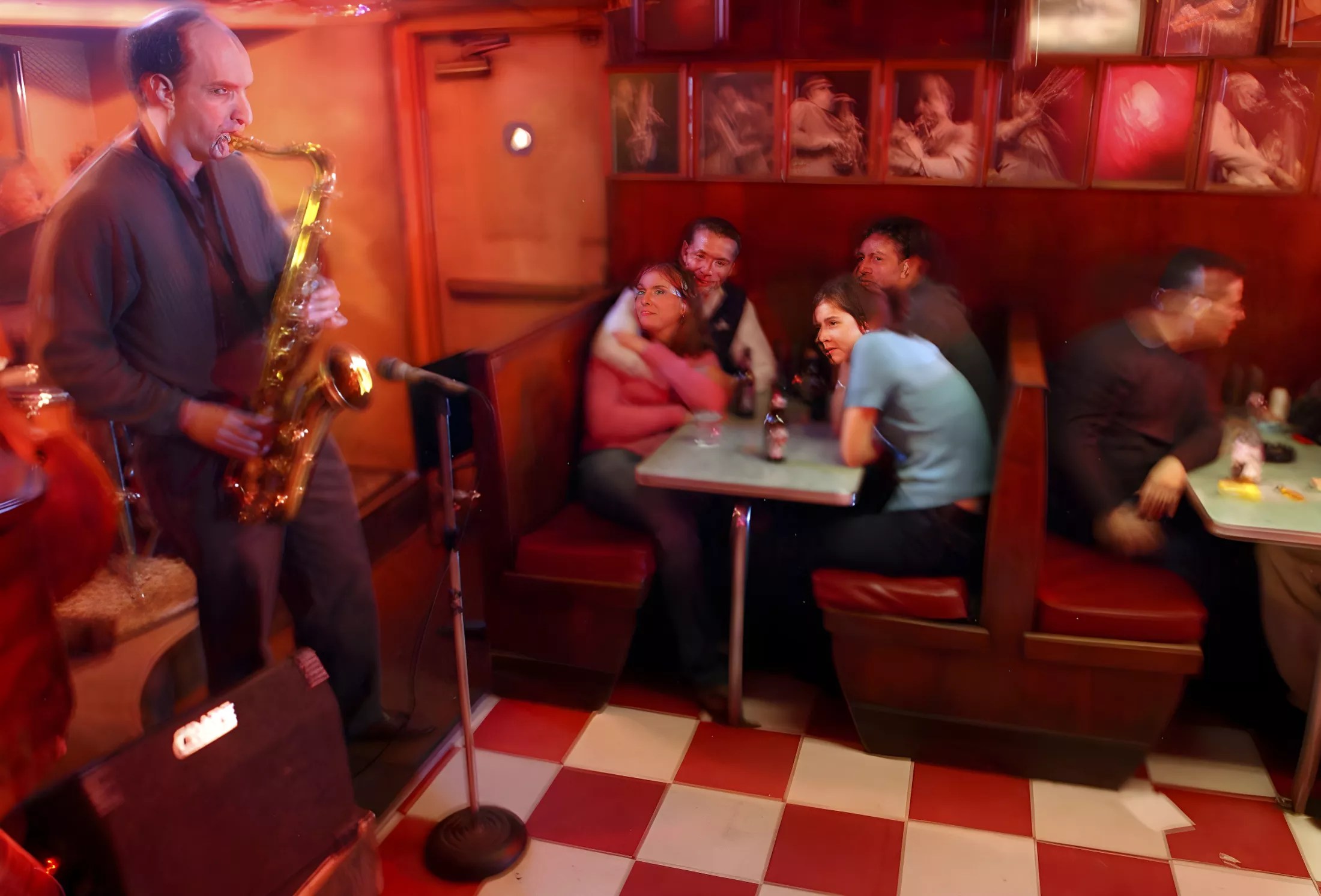
Jon Solomon

Audio By Carbonatix
“The British are coming, the British are coming.” The empty bottle of rotgut might have addled his other senses, but it had spared this fellow’s sense of humor. From his position on the sidewalk corner near El Chapultepec, he had a good view of all the action on the streets around him, including me as I walked past him from our office at 18th and Wynkoop streets to one of Denver’s most legendary bars: El Chapultepec, at 1962 Market Street.
This was before Coors Field was constructed just two blocks beyond that office, before Denver even had a major-league team, back in the late ’80s when the Lower Downtown Historic District had just been formed in an area only recently nicknamed “LoDo.” I was on my way to meet Karle Seydel, then the unofficial mayor of what was known affectionately as “NoDough” and officially the first director of the Larimer Square North Merchants’ Association.
From that spot, Seydel had an equally good view of the developing action in the area. At times, he was the only action. He worked with that other unofficial mayor of NoDough, Eddie Maestas, the owner of Johnnie’s Market, to host chile festivals and other events to bring people to the 2000 block of Larimer Street. Beyond the Mexican cafes and pawn shops and mom-and-pop stores, the neighborhood’s real draw, of course, was El Chapultepec, which had gained an international reputation as a place for cold beer and hot jazz (and, incidentally, very hot green chile). But things were beginning to change as Denver’s great-city ambitions grew and LoDo spilled to the north.
“The British are here,” Seydel said, as I told him of my encounter and we sat at the bar drinking those cold beers, listening to the free jukebox – “because this is America,” said the fellow holding up the bar a few stools away – and talking with owner Jerry Krantz about changes already coming to the area.

Jerry Krantz sharing a story at El Chapultepec.
Evan Semón Photography
El Chapultepec had opened on that most American of days, the day after Prohibition was repealed in December 1933, in a storefront on Market that was already forty years old. Krantz began bartending at El Chapultepec in 1958 and inherited the business – but not the building – a decade later from his father-in-law, Tony Romano. While mariachi music had been the featured genre, Krantz turned the place into a jazz club. For decades, it was a lonely and crucial cultural outpost, but then the British and everyone else really started coming. Denver got major-league baseball, the area just northwest of El Chapultepec was chosen over two other spots as the future home of the ballpark, and developers were pouring in.
But the music at El Chapultepec continued, with that tiny stage hosting everyone from local pick-up groups to legendary musicians who came over from the annual Gibson Jazz Concerts for all-night pick-up sessions. According to legend, Ella Fitzgerald, Paul McCartney, Mick Jagger and even Bill Clinton stopped by (not on the same night). But it’s no myth that the place was always hopping, and an inspiration for young musicians in Denver.
“I’d ahve to say the ‘Pec helped dusty old Denver become a well known jazz town,” says musician/entrepreneur Andrew Hudson, former press secretary for Mayor Wellington Webb. “And that reputation exists today.”
Seydel passed away in 2010, and Krantz passed away two years later, at the age of 77. “He was there every night,” musician Freddy Rodriguez told the author of Krantz’s obituary; he’d met him in 1979 and played at El Chapultepec for decades after that. “He’d sit in the back all night every night. He never came and sat down front where the music was happening, but he knew what he wanted and he just loved the jazz community.”

Hot jazz and cold beer at El Chapultepec.
Evan Semón Photography
Angela Guerrero and Anna Diaz, Krantz’s daughters, took over the bar in 2012, under a lease with new landlord Shames Makovsky. But then came the pandemic. Rodriguez passed away soon after coronavirus struck four years ago this March, and by December of that year, Diaz and Guerrero were through. “I want to make sure we’re not going to be too quick to point the finger at COVID and our shutdowns for being the reason for this closure,” Diaz said at a December 8, 2020, announcement. “Undoubtedly, that makes an impact in our decision. But there are so many things that led to this choice.”
In the mix: Rockies fans disrupting shows after games, safety concerns from nearby tent cities, and LoDo drunks pouring out of Market Street bars, explained Diaz: “It’s just really taking a toll on us. And it’s just that Denver’s different than it used to be, and 20th and Market is different than it used to be.”
And it was about to get even more different. In early 2021, Shames Makovsky leased the building to Valentes Corleons, a club owner who’d already run into trouble with other LoDo venues and was about to run into more, even as he transformed El Chapultepec into what he planned to call Cantina, after the sign painted on those legendary walls. He’d already ripped out the historic stage and booths by the time he returned the keys to the landlord in early 2022, complaining about permitting holdups from the city and a few other challenges, like his club Beta being named a public nuisance.
“That’s the end right now,” Corleons said of giving up his club empire. “The city thinks I’m a bad guy, and they hate me so much. It breaks my heart that they never got to know me and listen to what I’ve been through, see my side. They never treated me as a business guy.”
Or as an engineer or architect. In November 2022, Shames Makovsky sold the building – or what was left of it – to Monfort Companies, which already owns many of the structures along that block of Market. The company also snapped up the building at 1320 20th Street that houses the Giggling Grizzly. “The forthcoming rehabilitation and amalgamation of El Chapultepec and the Giggling Grizzly will build upon the momentum prevalent in this neighborhood and, ideally, catalyze continued investment here. We see investment in this neighborhood as an economic imperative that will help Denver claim its spot as a top entertainment destination nationally,” said Kenneth Monfort, executive vice president of Monfort Companies, in announcing the deal. Kenneth is the son of Charles Monfort, a co-owner of the Colorado Rockies with his brother, Dick.
Beyond that, Kenneth wasn’t revealing what kind of entertainment would go into the combined venues. “Live music, broadly,” he said. “But yes, there will be a jazz element.”
In the meantime, El Chapultepec served as sort of a music clubhouse, initially known as the 87 Foundation, for the number of years El Chapultepec had been open, and now ONE Denver. But Krantz’s daughters didn’t want much to do with that group, and came up with their own plan for their family’s heritage: the El Chapultepec Lounge at the relocated Dazzle, and the Legacy Project that would push Denver’s jazz heritage.
And now Monfort reportedly has some plans of its own: to demolish El Chapultepec completely.
“This is a building that cannot be repaired,” Matt Runyon, development partner at Runyon, told BusinessDenver; before he knew of the condition of the structure, he’d been pushing to make the space a focus for local music.

For decades, El Chapultepec was a destination in lower downtown.
Evan Semón Photography
There’s no question the building is in bad shape – what age didn’t do on its own, Corleons helped along by removing structural elements without permits. But music fans never really worried about the ultimate fate of El Chapultepec; since the building is in the Lower Downtown Historic District, they assumed it would automatically be saved. Not so, it turns out.
When the LoDo historic district was established nearly forty years ago, El Chapultepec was determined to be a “non-contributing structure,” and thus potentially eligible for demolition. According to Historic Denver, which has led the charge to save this city’s historic structures for more than five decades, “Non-contributing structures are those built outside the Period of Significance, or those that have been altered and no longer have historic integrity.” And in El Chapultepec’s current condition, the latter might apply, except…
Since the Lower Downtown Historic District was created, other criteria for landmark eligibility have been added, beyond the historic significance of how the building was used, or the pedigree of who created it. Now also considered are whether applicants “represent an era of culture or heritage that allows an understanding of how the site was used by past generations; be a physical attribute of a neighborhood, community, or the city that is a source of pride or cultural understanding; be associated with social movements, institutions, or patterns of growth or change that contributed significantly to the culture of the neighborhood, community, city, state, or nation.”
And those three alone could push El Chapultepec’s eligibility over the top, even if there’s no top of the building to save. The exterior walls, with their iconic signs, could be enough to save; Historic Denver has worked with less before.
Having caught wind that Monfort Companies is planning to file plans that would require the demolition of El Chapultepec – its footprint would be used for an outdoor patio, reportedly – Historic Denver hurriedly worked on a landmark application for the structure that was filed late March 11. Historic Denver, in conjunction with the Honorable Elbra Wedgeworth and professional musician Ron Bland, filed the paperwork that would protect the building from demolition, if the city gives it landmark status.
“The story of our city is told by buildings large and small, grand and discreet. If the walls of 1962 Market Street could talk, they would tell the stories of the countless patrons, musicians, politicians, and even a U.S. president, who gathered at El Chapultepec, Denver’s legendary jazz club,” Historic Denver President and CEO John Deffenbaugh said in an announcement of the filing. “The history of our city is being lost as places that tell Denver’s story, like El Chapultepec, are demolished. Historic Denver has been trying to work with the building owner, Monfort Companies, since last year to offer suggestions on how to adaptively reuse the building. Sadly, this advice has not been acted upon, and we understand the owner intends to apply for a demolition permit. We remain hopeful that a compromise solution can be found to protect this key piece of Denver’s history outside the landmark designation process. If not, we firmly believe this 130-year-old building, and the stories it continues to tell, is deserving of the protection afforded by landmark designation.”
Adds Wedgeworth: “El Chapultepec is truly one of Denver’s most iconic buildings, which should be preserved not only for it’s historical significance, but also for its cultural history of life and the music of our city, which is the fabric of the community of Denver.”
Beyond that, no one has been commenting, not officially. Anna Diaz offers only this: “The magic of El Chapultepec is the people,” she says. “Part of what pulled our heartstrings, when faced with potential destruction, is the collective mourning over all we’ve lost over the last decade. There have been a lot of cultural losses, losses of community gathering places.”
If these walls could talk, they’d be screaming right now.
This is one Denver can’t afford to lose.
This story has been updated to include observations from Andrew Hudson and the link to a BusinessDenver story on the Monfort Co.’s plans.